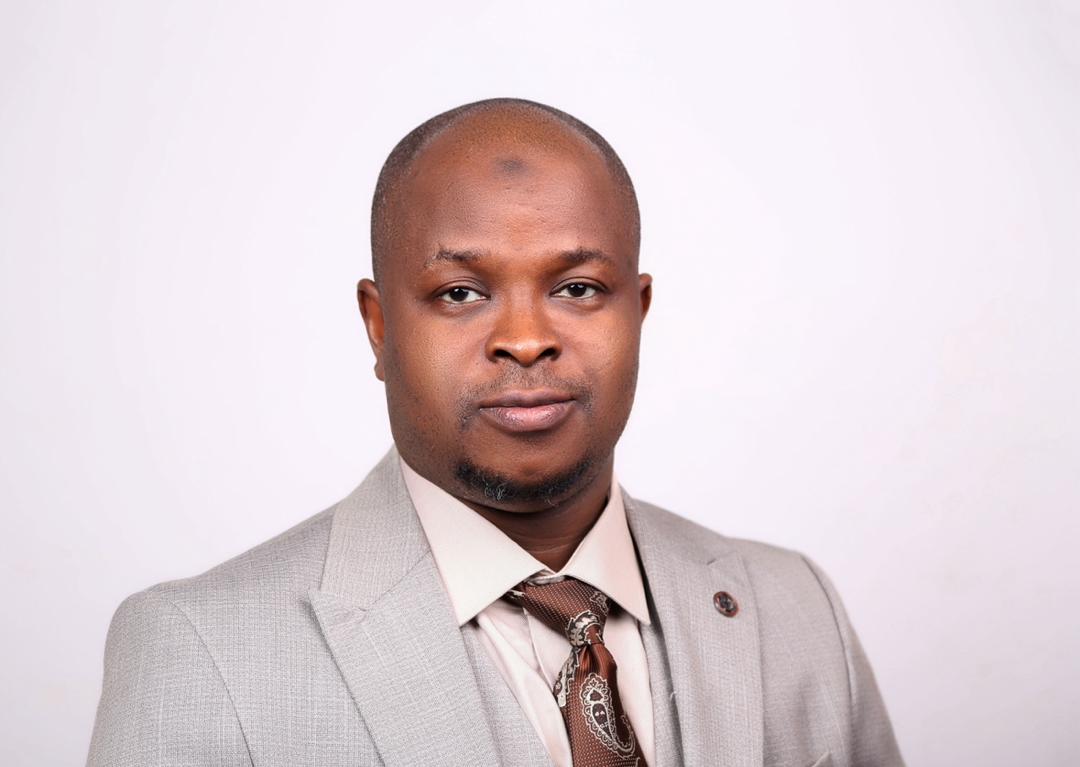TECH WORLD
Galaxy Backbone CEO Seeks Sustainable Digital Infrastructure to Fuel Africa’s Economic Growth
Published
1 year agoon

The Managing Director/Chief Executive Officer of Galaxy Backbone, Prof. Ibrahim Adeyanju, has underscored the importance of building sustainable digital infrastructure to fuel Africa’s economic transformation.
Presenting a paper titled: Building Digital Infrastructure for a Sustainable Digital Economy at the 2024 edition of Africa Tech Alliance Forum (AfriTECH 4.0) held recently in Lagos, Prof. Adeyanju noted that technology has the potential to redefine Africa’s economic trajectory, and that at Galaxy Backbone, they are dedicated to building the foundational digital infrastructure that supports this vision.
Read Also:
According to him, “Africa’s digital journey presents immense opportunities, but it requires robust, scalable, and sustainable infrastructure to enable economic growth. Galaxy Backbone’s mission aligns directly with these goals, as we work to provide the infrastructure and connectivity that powers government services, businesses, and communities across Nigeria.”
He said that today, digital infrastructure is much more than just technology but about creating resilient systems that empower citizens, foster economic empowerment, and drive inclusive growth. “Our investments in state-of-the-art data centres, fibre optic networks, state of the art SOC and secure cloud solutions have created a backbone that supports Nigeria’s public sector and enables interconnectivity among MDAs,” he said.
Prof. Adeyanju who was represented at the event by Mr. Nnamdi Onoh, Field Service Engineer at Galaxy Backbone, highlighted key projects, including the National Information Communication Technology Infrastructure Backbone (NICTIB), which has expanded connectivity and digital services across Nigeria.
Focusing on sustainability, he outlined Galaxy Backbone’s commitment to three pillars including Environmental Responsibility through energy-efficient practices in data centres; Economic Empowerment which aims at facilitating job creation and innovation, allowing businesses to scale; and Social Inclusion which is targeted at bridging the digital divide and reaching underserved communities.
He said that looking ahead, Galaxy Backbone plans to expand cloud services, strengthen cybersecurity, and explore AI, IoT, and blockchain to build a future-ready infrastructure, noting that the Government Service Portal (GSP), a consolidated platform for public services, was also introduced as a step towards enhancing transparency and citizen-centric services.
“In the next 12 to 24 months, Galaxy Backbone will focus on expanding our cloud capabilities, strengthening cybersecurity, and exploring emerging technologies like AI, IoT, and blockchain to enhance service delivery. Our goal is to build a future-ready infrastructure that supports the dynamic needs of Nigeria’s digital economy.
“We are also advancing projects such as the Government Service Portal (GSP), which consolidates public services into a single, accessible platform. This effort demonstrates our commitment to making government services more transparent, efficient, and citizen-centric,” he said.
The CEO emphasized that digital transformation is a collaborative effort involving government agencies, industry, and international partners and highlighted partnerships with NITDA, the Ministry of Communications, and ECOWAS members as essential for a resilient digital economy.
According to Prof. Adeyanju, “As we pursue this vision, we recognize the challenges we face—connectivity gaps, regulatory hurdles, and cybersecurity threats. Our approach is to address these proactively by investing in secure, scalable infrastructure and advocating for policies that enable digital growth. At Galaxy Backbone, we are committed to developing a skilled workforce capable of managing and advancing our digital infrastructure.”
In recognition of its leadership, Galaxy Backbone was awarded the ATAEx Outstanding Government Agency of the Year, an award Prof. Adeyanju said “underscores our commitment to a secure, inclusive, and sustainable digital future for Nigeria, reaffirming Galaxy Backbone’s dedication to advancing Africa’s digital economy.”
Share this:
- Click to share on X (Opens in new window) X
- Click to share on Facebook (Opens in new window) Facebook
- Click to share on WhatsApp (Opens in new window) WhatsApp
- Click to share on Pocket (Opens in new window) Pocket
- Click to share on Telegram (Opens in new window) Telegram
- Click to email a link to a friend (Opens in new window) Email
- Click to share on LinkedIn (Opens in new window) LinkedIn
You may like


George Agu to Lead Discussions at Afritech 5.0


AfriTECH 5.0: Experts to Discuss AI & Sovereign Tech in Building Africa’s Digital Independence


AfriTECH 4.0: Experts Highlight How Blockchain, AI, eCommerce Can Grow Africa’s GDP


NCC, NITDA, PalmPay Thrown Weight behind AfriTECH 4.0


Digital Encode Targets Unicorn Status, Showcases Cutting-edge Cybersecurity Solutions @ AfriTECH 4.0


AfriTECH 3.0: Digital Encode Hints How Emerging Techs Drive Cyber Trends












